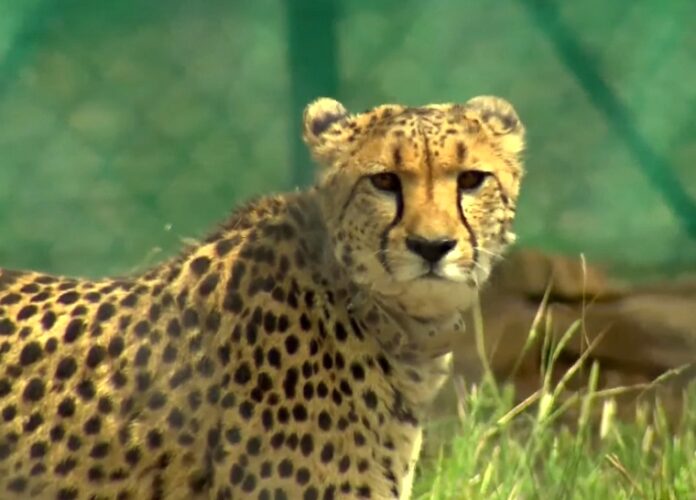As per the preliminary analysis by National Tiger Conservation Authority (NTCA), the apex body entrusted with the implementation of Project Cheetah, all mortalities are due to natural causes.
The Ministry of Environment and Forest said on Sunday that Cheetah has been brought back to India after seven decades and a project of such a stature is bound to undergo ups and downs.
Global experiences particularly from South Africa suggests that the initial phase of reintroduction of Cheetah in African countries has resulted in more than 50 per cent mortality of introduced Cheetahs.
The mortality of Cheetah may happen due to intra-species fights, diseases, accidents before release and post release. Mortalities might also result from injury caused during hunting of prey, poaching, road hits, poisoning and predatory attack by other predators, etc.
Considering all these eventualities the action plan has made provision for annual supplementation of initial founder population annually for managing the demographic and genetic composition of the reintroduced population, the official added.
The Ministry official said that there are reports in the media attributing these Cheetah deaths to other reasons including their radio collars etc.
Such reports are not based on any scientific evidence but are speculation and hearsay.
Project Cheetah is yet to complete a year and it will be premature to conclude the outcome in terms of success and failure, since Cheetah reintroduction is a long-term project.
In the last 10 months, all stakeholders involved in this project have gained valuable insights in Cheetah management, monitoring and protection.
There is optimism that the project will succeed in the long run and there is no reason to speculate at this juncture, ministry official added.
The Environment and Forest Ministry said that for investigating the cause of Cheetah deaths, consultation with international cheetah experts/ veterinary doctors from South Africa and Namibia is being done on regular basis.
Further, the existing monitoring protocols, protection status, managerial inputs, veterinary facilities, training and capacity building aspects are being reviewed by independent national experts.
The Cheetah Project Steering Committee is closely monitoring the project and has expressed satisfaction over its implementation so far, the official added.
Further, steps like establishment of Cheetah Research Centre with facilities for rescue, rehabilitation, capacity building, interpretation; bringing additional forest area under administrative control of Kuno National Park for landscape level management, providing additional frontline staff, establishing Cheetah Protection Force, and creation of second home for Cheetahs in Gandhi Sagar Wildlife Sanctuary, Madhya Pradesh have been envisaged, the official said.
–IANS
gcb/pgh

































